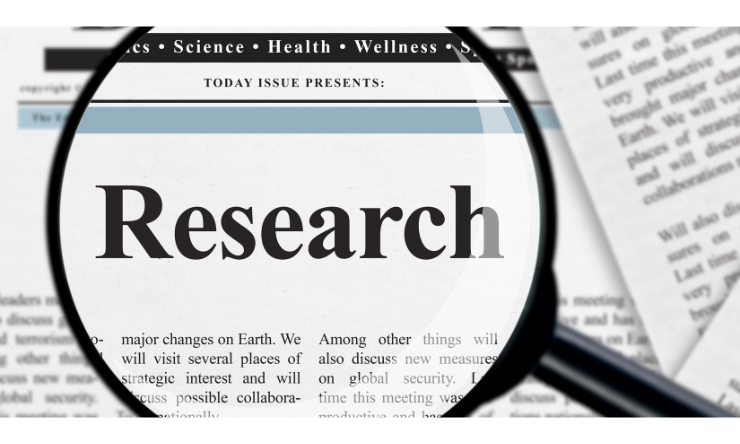Share
Analysis of 120,000 records held on the UK Biobank, a large-scale population-based biomedical database, has shed light on the role of genetics and diet in glaucoma.

The international, multi-centre study, conducted by the Icahn School of Medicine at Mount Sinai, found that consuming large amounts of daily caffeine may increase the risk of glaucoma more than three-fold for those with a genetic predisposition to higher eye pressure. Published in the June print issue of Ophthalmology, this is the first research to demonstrate a dietary – genetic interaction in glaucoma.
Despite the finding, Australian glaucoma specialist Associate Professor Simon Skalicky was quick to point out that people with glaucoma needn’t stop consuming caffeine altogether.
“This study looked at the combined influence of genetic risk for glaucoma (based on many genes), and dietary intake of caffeine, and how these influence an individual’s risk of developing glaucoma. It showed that for the vast majority of individuals, caffeine had negligible or no influence on one’s risk of glaucoma. However, for people with the highest genetic risk for glaucoma, a daily intake of a large amount of caffeine further increased their risk of developing glaucoma,” he said.
“Based on this, people with moderate or advanced glaucoma, or those with a very strong family history of glaucoma, might consider moderating their daily intake of caffeine, but it does not imply that caffeine is universally harmful, and it does not imply that people with glaucoma should have no caffeine intake,” A/Prof Skalicky concluded.
Caffeine Impact on Glaucoma, IOP
The study looked at the impact of caffeine intake on glaucoma, and intraocular pressure (IOP), with elevated IOP being an integral risk factor for glaucoma, although other factors do contribute to this condition.
Dr Louis R. Pasquale, lead/corresponding author and Deputy Chair for Ophthalmology Research for the Mount Sinai Health System said the research team has previously published work suggesting that high caffeine intake increased the risk of high-tension open angle glaucoma among people with a family history of disease. However this study found an adverse relation between high caffeine intake and glaucoma was only evident among people with the highest genetic risk score for elevated eye pressure.
The researchers used the UK Biobank, a large-scale population-based biomedical database supported by various health and governmental agencies. They analysed records of more than 120,000 participants between 2006 and 2010. Participants were between 39 and 73-years-old and provided their health records along with DNA samples, collected to generate data. They answered repeated dietary questionnaires focusing on how many caffeinated beverages they drink daily, how much caffeine containing food they eat, the specific types, and portion size. They also answered questions about their vision, including specifics on if they have glaucoma or a family history of glaucoma. Three years into the study they had their IOP checked and eye measurements.
Researchers first looked at the relationship between caffeine intake, IOP and self-reported glaucoma by running multivariable analyses. Then they assessed if accounting for genetic data modified these relationships. They assigned each subject an IOP genetic risk score and performed interaction analyses.
The investigators found high caffeine intake was not associated with increased risk for higher IOP or glaucoma overall; however, among participants with the strongest genetic predisposition to elevated IOP – in the top 25 percentile – greater caffeine consumption was associated with higher IOP and higher glaucoma prevalence. More specifically, those who consumed the highest amount of daily caffeine – more than 480mg which is roughly four cups of coffee – had a 0.35mmHg higher IOP. Additionally, those in the highest genetic risk score category who consumed more than 321mg of daily caffeine – roughly three cups of coffee – had a 3.9-fold higher glaucoma prevalence when compared to those who drink no or minimal caffeine and in lowest genetic risk score group.
“Glaucoma patients often ask if they can help to protect their sight through lifestyle changes, however this has been a relatively understudied area until now. This study suggested that those with the highest genetic risk for glaucoma may benefit from moderating their caffeine intake. It should be noted that the link between caffeine and glaucoma risk was only seen with a large amount of caffeine and in those with the highest genetic risk,” says co-author Dr Anthony Khawaja, Associate Professor of Ophthalmology University College London Institute of Ophthalmology and ophthalmic surgeon at Moorfields Eye Hospital. “The UK Biobank study is helping us to learn more than ever before about how our genes affect our glaucoma risk and the role that our behaviours and environment could play. We look forward to continuing to expand our knowledge in this area.”
This article first appeared in mivision. It has been reprinted with the permission of www.mivision.com.au (Toma Publishing).



